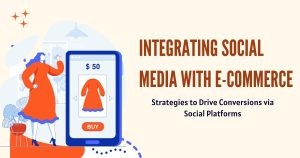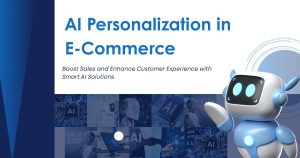Why Your E-commerce Business Needs a Marketing Agency

E-commerce marketing agencies help online stores grow by managing SEO, ads, social media, content, and conversions. They save time, use expert strategies, and boost sales, traffic, and customer loyalty, turning marketing into a key growth driver.
Running an e-commerce business means juggling countless responsibilities. Between managing inventory, handling customer service, and optimizing your website, marketing often takes a backseat. Yet marketing is the engine that drives sales and growth for online retailers.
Many e-commerce entrepreneurs start by handling their own marketing. They create social media posts, run basic Google ads, and send occasional email newsletters. While this DIY approach works initially, it becomes unsustainable as businesses grow. The digital marketing landscape is complex and constantly evolving, requiring specialized knowledge and dedicated time that most business owners simply don’t have.
This is where e-commerce marketing agencies step in. These specialized firms understand the unique challenges of selling online and have the expertise to navigate the competitive digital marketplace. They can transform your marketing from a time-consuming burden into a revenue-generating asset.
What Is an E-commerce Marketing Agency?
An e-commerce marketing agency focuses exclusively on helping online retailers grow their businesses through strategic digital marketing. Unlike general marketing agencies that serve various industries, these specialists understand the specific needs of e-commerce companies.
These agencies typically offer services like search engine optimization (SEO), pay-per-click advertising (PPC), email marketing, social media management, and conversion rate optimization. They know how to optimize product pages, create compelling ad copy for online shoppers, and implement strategies that drive both traffic and sales.
The key difference lies in their understanding of the e-commerce customer journey. They know that online shoppers behave differently than traditional consumers, often researching extensively before purchasing and requiring multiple touchpoints before converting.
The Challenges of DIY E-commerce Marketing

Time Constraints
Marketing an e-commerce store effectively requires significant time investment. Creating content, managing ad campaigns, analyzing data, and staying current with platform updates can easily consume 20-30 hours per week. Most business owners find themselves choosing between marketing activities and other critical business operations.
Keeping Up with Platform Changes
Digital marketing platforms update their algorithms and features constantly. Google changes its search algorithm hundreds of times per year, while Facebook regularly updates its advertising policies and targeting options. Staying current with these changes while running a business proves nearly impossible for most entrepreneurs.
Lack of Specialized Knowledge
Effective e-commerce marketing requires understanding complex concepts like customer lifetime value, attribution modeling, and conversion funnels. Without this knowledge, business owners often waste money on ineffective campaigns or miss opportunities to optimize their marketing spend.
Limited Resources
Small e-commerce businesses typically have limited budgets for marketing tools and software. Agencies have access to premium tools and can spread these costs across multiple clients, providing better value and more comprehensive analysis.
Key Services E-commerce Marketing Agencies Provide

Search Engine Optimization (SEO)
E-commerce SEO involves optimizing product pages, category pages, and blog content to rank higher in search results. Agencies handle keyword research and technical SEO, ensuring your site performs well on search engines. For a more comprehensive guide, read our E-commerce Digital Marketing Guide.
Pay-Per-Click Advertising (PPC)
Managing profitable PPC campaigns requires understanding bid strategies, keyword selection, and ad copy optimization. Agencies can manage campaigns across Google Ads, Facebook Ads, Amazon Advertising, and other platforms simultaneously. They know how to structure campaigns for maximum return on ad spend (ROAS) and can quickly identify and eliminate unprofitable keywords.
Email Marketing
Email remains one of the highest ROI marketing channels for e-commerce businesses. Agencies can set up automated email sequences for abandoned cart recovery, post-purchase follow-ups, and customer retention campaigns. They understand how to segment email lists based on customer behavior and purchase history.
Social Media Marketing
Social media marketing for e-commerce goes beyond posting product photos. Agencies create comprehensive strategies that include influencer partnerships, user-generated content campaigns, and social commerce integration. Learn how to Leverage Social Commerce for E-commerce.
Conversion Rate Optimization (CRO)
Agencies use data analysis and A/B testing to improve website conversion rates. Small improvements in conversion rates can significantly impact revenue without increasing traffic costs. For more tips, see our post on AI Chatbots Ecommerce Conversions.
Benefits of Working with an E-commerce Marketing Agency

Access to Expertise
Agencies employ specialists in different areas of digital marketing. Instead of trying to become an expert in every marketing channel, you gain access to a team of professionals who stay current with best practices and industry trends.
Advanced Tools and Technology
Professional marketing agencies use premium tools for analytics, keyword research, competitor analysis, and campaign management. These tools often cost hundreds or thousands of dollars monthly, making them impractical for individual businesses but cost-effective when shared across an agency’s client base.
Faster Results
Experienced agencies can avoid common mistakes and implement proven strategies immediately. While it might take months to learn effective PPC management through trial and error, agencies can launch profitable campaigns from day one.
Scalable Growth
As your business grows, agencies can scale your marketing efforts accordingly. They can increase ad spend efficiently, expand to new marketing channels, and handle the increased complexity that comes with business growth.
Data-Driven Decisions
Agencies base their strategies on data analysis rather than guesswork. They track key performance indicators (KPIs) like customer acquisition cost, lifetime value, and return on ad spend to ensure marketing investments generate profitable returns.
Seasonal and Trend-Based Marketing for E-commerce

E-commerce sales are often heavily influenced by seasonal trends and market fluctuations. The ability to anticipate these trends and adapt marketing strategies accordingly can make the difference between a successful quarter and missed revenue targets. Agencies track industry trends, competitor campaigns, and seasonal purchasing behaviors to develop timely and relevant promotions.
For example, holiday shopping periods, back-to-school seasons, or summer sales require unique messaging and tactical adjustments across channels. Agencies can design campaigns that leverage these trends, such as limited-time offers, thematic email sequences, and social media promotions that resonate with customers’ seasonal expectations.
Additionally, trend-based marketing allows businesses to test emerging platforms or advertising features quickly. If a new social media tool or ad format begins to gain traction, an agency can pivot campaigns to take advantage of early adoption, giving their clients a competitive edge. This level of strategic foresight is difficult to achieve without dedicated expertise and constant market monitoring.
How to Choose the Right E-commerce Marketing Agency
Look for E-commerce Specialization
Choose agencies that focus specifically on e-commerce rather than general digital marketing agencies. E-commerce specialists understand the unique challenges of online retail, including seasonal fluctuations, inventory management impacts on marketing, and the importance of product feed optimization.
Evaluate Their Track Record
Request case studies and client references from businesses similar to yours. Look for agencies that can demonstrate measurable results like increased revenue, improved conversion rates, or reduced customer acquisition costs.
Understand Their Service Model
Some agencies offer full-service solutions, while others specialize in specific areas like PPC or SEO. Determine whether you need comprehensive marketing support or help with specific channels. Also, clarify whether they provide strategic guidance or just execution.
Assess Communication and Reporting
Choose agencies that provide regular, detailed reporting on campaign performance. They should be able to explain their strategies in understandable terms and provide insights that help you make informed business decisions.
Consider Budget and Pricing Structure
Agencies typically charge either monthly retainers, percentage of ad spend, or project-based fees. Understand exactly what services are included in their pricing and ensure their costs align with your budget and expected ROI.
Content Strategy and Storytelling for E-commerce
Content isn’t just for SEO—it’s a critical tool for establishing brand identity and connecting with customers on an emotional level. E-commerce marketing agencies craft comprehensive content strategies that include product descriptions, blog articles, video demonstrations, and user-generated content campaigns.
High-quality content educates and inspires potential buyers, helping them understand the value of your products. Storytelling plays a key role in this process. By highlighting the brand’s mission, showcasing customer success stories, or demonstrating product benefits in real-life scenarios, agencies create narratives that encourage trust and loyalty.
Agencies also align content with the customer journey. For early-stage leads, content focuses on education and problem-solving, whereas for returning customers, content emphasizes upselling, cross-selling, and building brand advocacy. This integrated content strategy ensures that every touchpoint contributes to customer engagement and drives revenue growth.
Creative Campaign Design and Branding
An agency does more than just run ads—they help craft campaigns that resonate with your audience. From high-quality visuals and storytelling to seasonal promotions and thematic campaigns, agencies ensure your brand stands out in a crowded online marketplace. They also focus on maintaining a strong brand voice and identity across all campaigns. Consistent branding not only builds trust but also makes your products more recognizable, helping customers form emotional connections with your brand. Agencies often combine creative expertise with AI-first content strategies to ensure campaigns remain innovative and data-informed.
They also focus on maintaining a strong brand voice and identity across all campaigns. Consistent branding not only builds trust but also makes your products more recognizable, helping customers form emotional connections with your brand. Agencies often combine creative expertise with data insights to design campaigns that are both compelling and effective.
E-commerce Site Optimization and User Experience
Marketing success is not just about attracting traffic; it’s also about converting it. Agencies analyze your website’s performance, identifying friction points that prevent purchases. This includes optimizing product pages, improving navigation, streamlining checkout processes, and ensuring mobile responsiveness.
A smooth, intuitive user experience increases conversion rates and reduces cart abandonment. Agencies often conduct A/B testing, heat mapping, and other UX research to continually refine the shopping experience, ensuring that marketing efforts translate into measurable sales.
Making the Investment Decision
Hiring an e-commerce marketing agency represents a significant investment, but the potential returns can be substantial. Consider that the cost of agency services should be offset by increased revenue and the value of your time saved.
Before making a decision, calculate your current marketing ROI and identify areas where you’re struggling. If you’re spending money on advertising without clear results, or if marketing tasks are preventing you from focusing on other aspects of your business, an agency partnership likely makes financial sense.
Many successful e-commerce businesses credit their growth to partnering with the right marketing agency. The key is finding an agency that understands your specific needs and has the expertise to help you achieve your growth goals.
Transform Your E-commerce Marketing Today
E-commerce marketing agencies offer the specialized expertise, tools, and resources that online retailers need to compete effectively. While the investment may seem significant, the potential for increased revenue, improved efficiency, and accelerated growth makes it worthwhile for most growing e-commerce businesses.
Take time to evaluate your current marketing performance and identify areas where professional help could make the biggest impact. Research potential agency partners thoroughly, and don’t hesitate to ask detailed questions about their experience and approach.
The right agency partnership can transform your marketing from a necessary expense into your most valuable growth driver. Start your search today and take the first step toward more effective, profitable e-commerce marketing.
Frequently Asked Questions (FAQ)
Do I need an agency if I already manage social media myself?
While you may handle basic social media management, an agency brings expertise in strategy, analytics, ad optimization, and multi-channel integration. They can take your social media from a time-consuming task to a revenue-driving asset.
How long does it take to see results from an agency?
Timelines vary depending on the services provided. Paid campaigns like PPC can generate traffic almost immediately, while SEO and content strategies may take 3-6 months to show measurable results. A good agency will provide clear performance benchmarks for each channel.
Are agencies expensive for small e-commerce businesses?
Agencies require investment, but their expertise often results in higher ROI, making the cost worthwhile. Many agencies also offer scalable packages to accommodate businesses of different sizes.
Can an agency help with international e-commerce marketing?
Yes. Many agencies have experience targeting multiple regions, adapting content, and managing ads in different languages, currencies, and cultural contexts to maximize global sales potential.
How do agencies measure success?
Agencies track KPIs such as conversion rate, customer acquisition cost, average order value, repeat purchase rate, and return on ad spend (ROAS). They provide detailed reporting so you can see tangible results.





